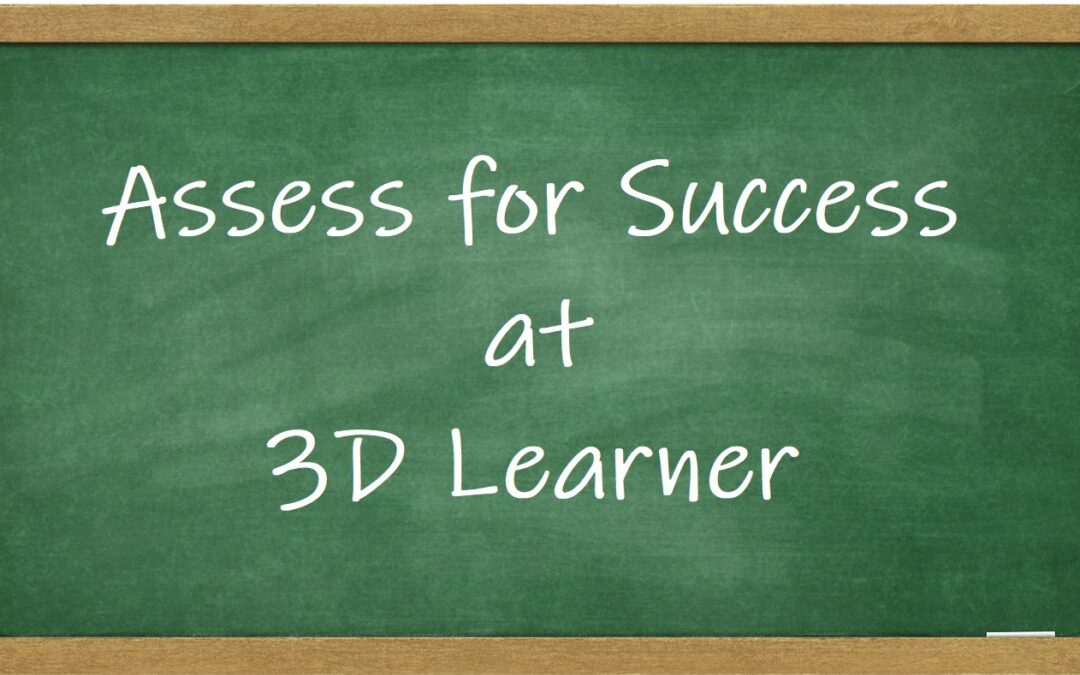
Students today are often struggling with reading fluency, reading comprehension and/or math.
Three of the greatest educational risks are:
- Parents often do not know what their child’s present level of reading fluency, reading comprehension and math skills are at
- Students who learn differently (i.e. neurodivergent, right brain and kinesthetic learners) often fall behind — as neither school based or home school curriculum may be consistent with how they learn best
- Without testing, parents may not be aware of how their child learns best, where their child is strong and where their child struggles
The opportunities for parents include:
- There are real benefits with an assessment that shows you::
- How your child learns best
- What are your child’s strengths and challenges
- What is your child’s present level of performance for reading fluency, reading comprehension and math
- If needed, the assessment can help educators to tailor a program to:
- Capitalize on how your child learns best
- Improve their reading speed, reading comprehension and math skills
- Help you to be the coach your child needs
- How you can help your child be all they can be
How 3D Learner Assesses for Success
Mary called and was not sure about her child’s reading fluency, reading comprehension and math skills were at. She had tried two years of dyslexia treatments. Mary was not interested in labeling, but she was very interested in knowing:
- How her daughter learned best
- What her daughter’s strengths and challenges were
- What was her child’s present level of reading comprehension, reading fluency and math
- If there were significant gaps, could we help her daughter get to grade level or above
- Whether what we offered could improve her child’s baseball and soccer skills. Mary knew that her daughter would be even more interested in help, if it could make her better at baseball or soccer.
Mary shared a few of her frustrations, that included, her daughter:
- Understood stories when Mary read them to her, but struggled with silent reading comprehension
- Read more fluently, but often had difficulty remembering words she had seen and not mastered
- Was good at math, but was now struggling with math word problems.
We then asked Mary what her daughter was good at, Mary shared that her daughter:
- Had an excellent memory for things she had seen and experienced
- Was a good person — who loved playing with younger kids and cared about seniors
- Was good at baseball and soccer but was inconsistent. Three area of concern were:
- Her daughter would sometimes lose focus during a game
- In baseball, she would sometimes hit the ball well, but too often she would pull the ball foul
- In soccer, her shots often went to the right side of the goalie
- Her daughter was frustrated that she was not doing as well as she wanted to
We shared this infographic with Mary and explained how we assess for how the student learns best and whether they have a visual processing, executive function, dyslexia and/or anxiety challenge.
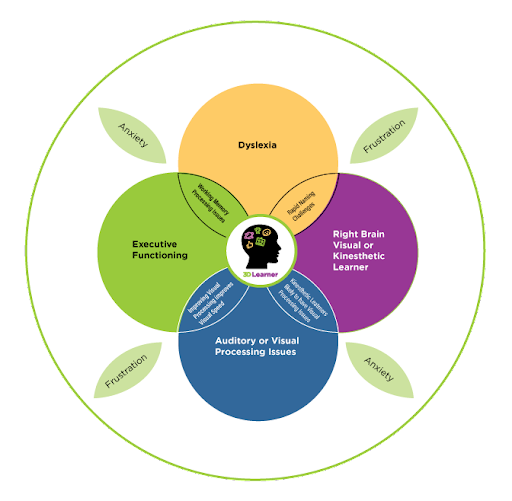
- Many smart struggling kids learn differently. They are often a neurodivergent, right brain or kinesthetic learner, who learn best when they see and experience information. This is important to know, because if they learn differently, it alters the way you teach them, the curriculum you may choose, how you parents them and how one coaches them in sports.
- 74% of the students we see have a visual processing issue – they may see the whole field or the whole room, but their eyes have difficulty converging. This often results in their skipping words and/or liens when reading and having difficulty catching a ball.
- The executive function challenges we often see may include:
- Difficulty sustaining attention and either being hyperactive or impulsive. When we assess a student with the Interactive Metronome ®, we often see that a student’s body moves faster than their brain. In sports, this results in hitting the ball too early. In baseball that would explain pulling it foul or for a right footed kicker, hitting the soccer ball to the right of the goalie. In life, the attention issues may results in a child losing focus when doing work or during a game
- The working memory assessment often shows a student has an excellent visual memory, but has difficulty remembering what they have heard or read
- The Dyslexia Assessment shows where a child is strong and where they struggle. We can assess for Dyslexia and we can also tailor a program that focuses on the key issues
- The reading comprehension assessment shows two different challenges:
- A number of students are below grade level
- Some students are at grade level, but the assessment shows they should and could be well above grade level
- Our math assessment shows us where a student is at and where they struggle
- The anxiety assessment often shows the student gets very anxious in certain situations
Mary asked about the tools we use and whether it is different from what schools and psychologists assess for. We shared that:
- The key assessment tool we use is the Structure of Intellect Assessment ® that shows how a student learns best, where they are strong and where they struggle.
Comments from a principal, a special educator and a psychologist
- A principal asked a special educator why their public school stopped using this assessment. The special educator said “We are required to find a disability in order to provide services. This assessment does not do that. 3D Learner has the luxury of focusing on tailoring a program to help a student succeed
- A psychologist commented, “I wish we could shift our focus from labeling to how to help a child succeed”
- The Visagraph ® we use to show if there is an eye tracking issue can show both the initial challenge and can be used post training to show the results Here is a video that shows a student’s eye tracking before and after training. He commented,. “I now enjoy reading and do much more of it”
- We use the Mindprint Assessment ® developed by by the University of Pennsylvania to assess executive function skills
- We use a Woodcock Johnson ® Reading Comprehensive Assessment
- We use the Core Dyslexia Assessment ® developed by the University of Florida to assess phonics, phonemic awareness and reading fluency. It also helps us to see if the child has dyslexia,
- We use the Perceptions Math Assessment ®
- We use Heartmath ® to assess for anxiety
When we assessed Mary’s daughter we did find that:
- She was a neurodivergent, right brain or kinesthetic learner who learns best when she sees and experiences information
- Her daughter had a number of skills that were well above grade level, but struggled with a few key skills
- She did have a significant visual processing issue
- Attention was an issue and her daughter’s body was racing faster than her mind This explained some of the self-control and sports related issues
- Her visual memory was excellent, but her auditory memory was weak
- She no longer has significant issues related to reading fluency, but there were some areas where she could benefit from additional training
- Her reading comprehension was a year below grade level
- Arithmetic was not an issue, but that word problems were
- Anxiety was an issue
Mary has the flexibility to prioritize training and her daughter was able to make significant gains over the next six months in reading comprehension, math, attention, visual processing, and self-esteem. Her baseball and soccer skills improved too. Mary commented that knowing my daughter was a neurodivergent learner with visual processing and executive function challenges changed everything, and addressing the whole child changed her life. She also added that by helping to improve my daughter’s baseball and soccer skills, you engaged her in the process.
If you would like to discuss your child’s situation and learn more about how we Assess for Success, you can call us at 561-361-7495 or click here to schedule an Assess for Success Conversation. Note, these assessments can be done in person or via zoom.

When a parent is told that their child is at risk of being retained, their initial response is often full of emotion. Frustration, anxiety and even guilt are felt. We can relate to that. As parents and Directors of 3D Learner, we strongly encourage parents to take a proactive approach to helping your child succeed. At 3D Learner our goals are to:
- Help parents realize that third grade retention risks are not your fault.
- There are a number go Good Cause Exemptions to help your child to avoid third grade retention and to be promoted
- Help you be an Informed, Empowered and Proactive parents who:
- Work together to help your child to be promoted
- Understands the depth of your child’s reading comprehension and related issues
- Becomes even more aware of your child’s strengths and challenges
- Partners with your child’s school and the right outside professionals to help your child to make significant gains in their reading comprehension and processing skills, so they are promoted and are much more successful in 4th grade and beyond
If your child is at risk for third grade retention or grade retention in any grade, we encourage you to join us for a presentation on March 13th at 9 pm on:
How to Beat Third Grade Retention or Other Grade Retention Risks by
Improving Reading Comprehension
Click here to register or
Call us at 561-361-7495 to discuss your situation or click here to schedule a
Beat Third Grade Retention by Improving Reading Comprehension Conversation
As one mom said, “How is it that after 5 minutes, you appear to understand my son’s strengths and challenges better than people who have known him for years?”
Our advantage is we have been helping bright right brain learners succeed for 27 years.
5 Key Points About Third Grade Retention
1- There are a number of Good Cause Exemptions that can be utilized to help a child to be promoted. The Florida Department of Education has created a valuable Read to Learn Document that can help you understand your options.
2- Most students facing third grade retention are 1, 1.5 or even 2 years below grade level in reading comprehension. If their reading comprehension issue is not addressed, the student is likely to struggle even more in 4th grade. After 3rd Grade, students are expected to READ TO LEARN; there is no more emphasis on reading instruction in the general classroom. That is the time when math, social studies and science require students to understand what they read. It is also a time when the print gets smaller, the pictures disappear and students with reading comprehension really struggle. Conversely, students who make significant reading comprehension gains by 4th grade have done much better.
3- In a small number of cases, third grade retention is right for a child. The child does not have sufficient all-around foundational skills to succeed in 4th grade. These might include cases where the child has a late summer birthday, they may have learning and attention challenges, and they would be better off not being promoted. This past year, we helped a few students where parents chose to homeschool their child, have a catch-up year, and make the decision about promotion later. In Florida, the Florida Empowerment Scholarship provides parents whose child has a qualifying disability to get around $10,000 a year that can be used for tutoring. For other students, there is a Personalized Education Program scholarship for $8000 that can be used for tutoring.
4- Many students facing third grade retention are right brain, kinesthetic or neurodivergent learners, who learn differently than the way most schools teach. These kids learn best when they see and experience information. They may also have dyslexia and/or working memory, processing speed, attention and/or visual processing issues.
5- By capitalizing on your child’s strengths and addressing their challenges, it is often possible to both beat third grade retention and to position your child to be far more successful in 4th grade and beyond.
Note, we have helped third graders to:
- Beat third grade retention and score well above grade level by 4th grade
- Improve their reading comprehension by 3 grade levels in a year
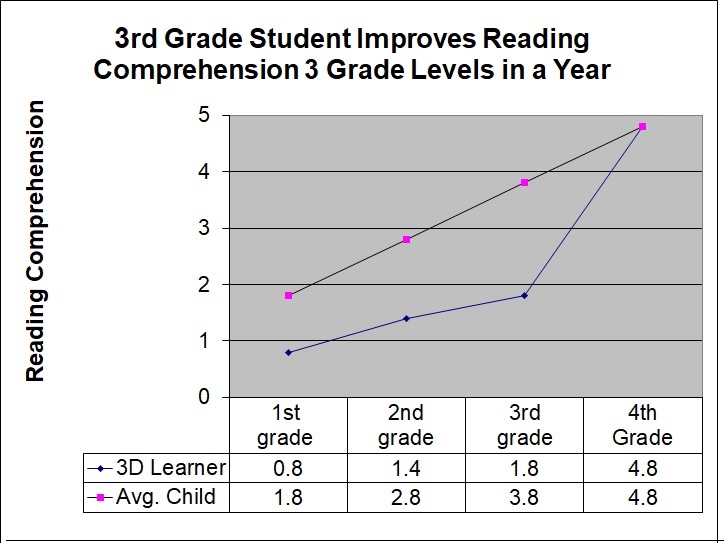
A year later his teacher commented, “He made more progress in a year than any student I have had in 27 years of teaching”
- Improve their academic and athletic skills, boost their self-esteem and lower their anxiety
If your child is at risk for third grade retention or grade retention in any grade, we encourage you to join us for a presentation on March 13th at 9 pm where we will be discussing:
How to Beat Third Grade Retention or Other Grade Retention Risks by
Improving Reading Comprehension
Click here to register or
Call us at 561-361-7495 to discuss your situation or click here to schedule a
Beat Third Grade Retention by Improving Reading Comprehension Conversation

The right brain neurodivergent learner is a student who:
- Learns best when they see and experience information
- Have difficulty understanding abstract words
- Often have visual processing issues
- Have not been taught to draw out a problem.
- May be good in math, but often struggles with Algebra.
For many right brain neurodivergent learners, math can either be:
- Very easy until they hit Algebra, and then it gets much harder
- Difficult until they hit Algebra, at which point it becomes incredibly difficult
For the right brain neurodivergent learner. Algebra is often very hard. At 3D Learner, we recognize that with a visual hands-on approach, the right brain neurodivergent can often significantly improve their:
- Algebra grade and easily pass their end of course exam
- ACT or SAT Score
- Chances of getting a scholarship. In Florida, for example, one needs a 1210 and 1340 score on their SAT to earn a Bright Futures Scholarship that could be worth $20,000 to $30,000 over 4 years. For many students, by increasing their math SAT score by 100, 150 or 200 points, they can now get a $20,000 or even a $30,000 scholarship.
- Chances of getting into the best possible college or university. Especially for those students striving to get into top universities, one often needs an SAT score of close to or over 1500
Algebra can be difficult for right brain neurodivergent learners because:
- Many more students have struggled in math since the pandemic, and Algebra is just that much harder when the student lacks a solid foundation in math.
- The wording of many problems is confusing. Right brain neurodivergent learners often have problems with abstract words like greater than, less than, except, etc. It is important that they learn this vocabulary.
- Many right brain neurodivergent learners have not been taught to draw out their work. This is an incredibly important skill, especially on the harder problems.
- On the SAT and ACT tests, the wording is often confusing. The right brain neurodivergent learner often misreads the questions and does not have sufficient time to complete the test.
- They often have done the math work in their heads and do not see the need to write out their work. Given the complexity of some algebra problems, this leads to many mistakes.
- They often do not check their work. They often assume they have it right. One SAT student got a 610 on a practice Math SAT. Without any additional help, I had him check his work on another test. This time he got a 690. It often helps when a third party teaches your child how to check their work.
- Algebra often requires abstract thinking and understanding of symbols to represent quantities and relationships. Right brain neurodivergent learners, especially those with a preference for right brain thinking, may struggle with this abstract concept, as they tend to excel more in concrete, visual, or intuitive thinking processes.
- Executive Functioning: Algebra requires strong executive functioning skills such as organization, planning, and working memory. Right brain neurodivergent may experience difficulties with these skills, which can hinder their ability to solve algebraic problems efficiently.
- Many right brain neurodivergent have a visual processing challenge. This may lead to multiple errors including:
- Missing minus and division signs
- Misaligning their numbers so they make “stupid” mistakes
- Taking longer to complete the test and not answering all the questions
At 3D Learner, we have been helping bright right brain neurodivergent learners to dramatically improve their math Algebra grades, their Math SAT scores and change their trajectory for over 25 years.
If you would like to discuss how you can help your child to significantly improve their math and Algebra grades, SAT scores and their chances to get into a better college or university, call us at 561-361-7495 or click here to schedule and Algebra Stress to Success conversation.
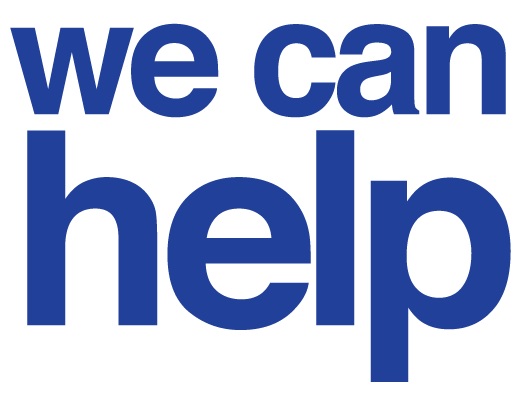
Why would your bright, creative child be at risk for third grade retention or any grade retention? If your child is a neurodivergent, right brain or kinesthetic learner (i.e. sometimes referred to as a hands-on learner or visual learner) they are behind due to their learning differences, executive function challenges and pandemic related challenges, even if they were in preschool.
Third grade retention is more likely to be a risk with mandatory retention rules, but students in early grades are at risk for grade retention too.
The good news is that if your child is a smart struggling neurodivergent, right brain or kinesthetic learner, they can often make significant gains in reading fluency and reading comprehension in months with our strength-based training.
We know that most smart struggling students:
- Are a neurodivergent, right brain or kinesthetic learner (hands-on) who can do far better with experiential learning that leverages their strengths
- Have some combination of working memory, processing speed, visual processing, attention, and/or anxiety challenges
- Are far smarter than present results would indicate
At 3D Learner, we have helped many students to:
- Beat grade retention and score at, above, or even well above grade level on tests
- Rediscover their natural love of learning
- Improve their working memory, processing speed, and self-esteem
- Improve their attention and emotional regulation
3D Learner can help the neurodivergent, right brain or kinesthetic learner beat third grade retention or other grade retention by making significant gains in reading fluency and reading comprehension in months. 3D Learner’s comprehensive educational assessment reveals important issues that many other assessments miss. For instance, one parent had a recent psycho-educational test that indicated her daughter had an attention, working memory and processing speed issue. After her daughter completed our assessment, she was surprised to learn that her daughter:
- Was a neurodivergent, right brain and/or kinesthetic learner (hands-on)
- Was a lot smarter than present results would indicate
- Had a significant visual processing issue, skipping words and lines when reading
- Struggled with small words, reading fluency, reading comprehension, and sequencing
- Had significant attention and emotional regulation issues
- Was very strong in 5 of the 11 skills we assessed — she had a great visual memory, was very creative and had a larger vocabulary than most
- But she had a real problem with the small words that often change the meaning of a sentence (i.e. words like the, but, what, if) and had significant anxiety challenges
By understanding how she learned best, we developed an engaging, personalized program built around her strengths and interests. In just months. 3D Learner helped her score above grade level on the standardized test. When they saw these results, the parents asked “Why do schools not teach the way the neurodivergent learner learns best?” We explained that schools, like most learning centers, focus on a child’s weaknesses.
Schools often do not:
- Leverage the student’s strengths and interests
- Identify and address issues like working memory, visual processing, or processing speed
- Ignite a love for learning, which is an essential part of the 3D Learner Experiential Learning Process.
Her daughter made great progress and was actually in the highest reading group the following year.
We see grade retention risks as a great opportunity for parents to make a true life-long difference in their child’s learning.
If you have a child in any elementary school grade who is struggling in school, 3D Learner can help. To discuss your child’s learning style and needs, call us at 561-361-7495.
Frequently asked questions about grade retention & the neurodivergent, right brain or kinesthetic learner
Question: What is the key reason for third grade retention and for earlier grade retention?
Answer: In Florida public and charter schools, third grade retention is primarily based on the student’s inability to do well on the English Language Assessment. While anxiety may be an issue, significant reading comprehension issues are often the primary issue. In the earlier grades, reading fluency is often the criteria for grade retention. At 3D Learner, we identify and address both reading fluency and reading comprehension issues.
Question: If many students at risk for grade retention are a neurodivergent, right brain or kinesthetic learner, why do the schools not teach this way?
Answer: Schools tend to have a one size fits all approach. There has been a real push towards phonics and phonemic awareness. Unfortunately, this does not provide the experiential learning most right brain or visual learners need. Even worse, we have seen smart and even gifted learners face grade retention because their needs were not met.
Question: Many programs focus on phonics and phonemic awareness. What are the key skills the neurodivergent, right brain or kinesthetic learner needs to master before phonics will work?
Answer Word recognition and sight word vocabulary are two of the skills needed before phonics will work. Processing speed, working memory, and attention are also skills that must be mastered.
Question: Experiential learning used to be the norm in kindergarten, first and second grade. What happened?
Answer: If that were still the case, the neurodivergent, right brain or kinesthetic learner would be more likely to thrive. The challenge today is that many of the standards are not age appropriate. This results in less experiential learning, which negatively impacts the neurodivergent, right brain or kinesthetic learner and makes grade retention more likely.
Question Is it too late in the school year to help beat third grade retention or any grade retention?
Answer It is almost never too late to beat third grade retention or grade retention. The rules on third grade retention in Florida provide many ways to beat third grade retention. The best one is to score a Level 2 on the state assessment. There are also ways to be retested at the end of the summer or at the start of the next school year.
Question: I am not sure if my child is a neurodivergent, right brain or kinesthetic learner or what issues are holding my child back. I fear third grade retention. Is there a way to talk with your team and to assess my child?
Here is a no cost screening tool you can use to see if your child might be a neurodivergent, right brain or kinesthetic learner.
Answer: You can call us at 561-361-7495 or click here to schedule a How to beat Third Grade Retention or other Grade Retention risks Conversation
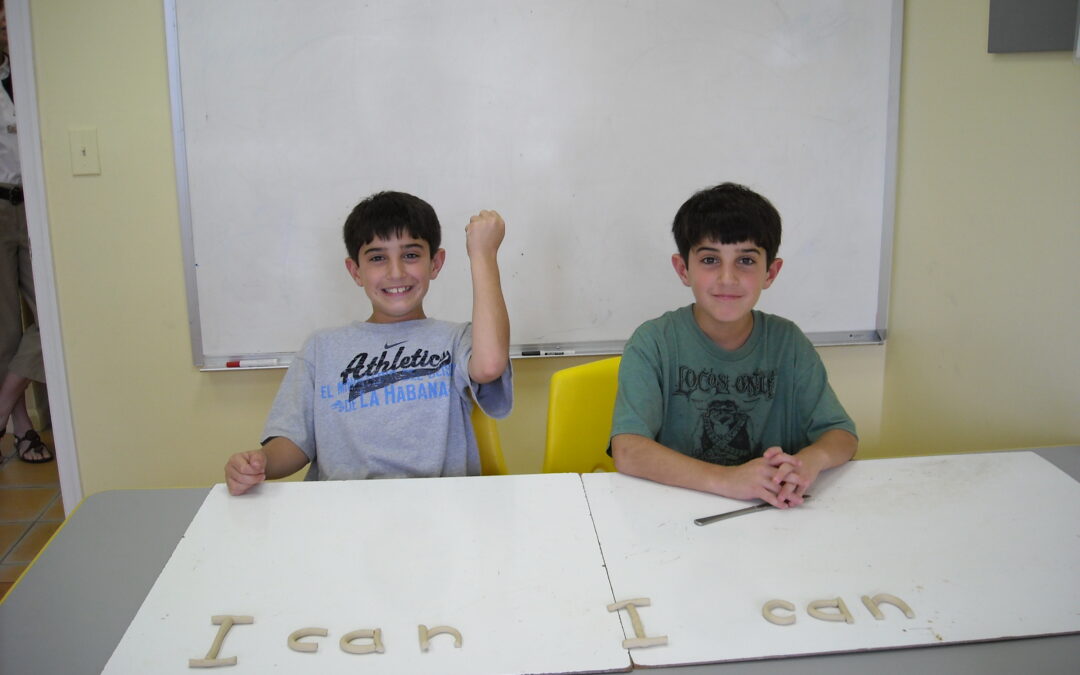
(Often Students Have Been Diagnosed with Dyslexia, ADHD and/or Executive Function Challenges)
3D Learner has helped hundreds of students from 40 different states and 12 foreign countries. These students often were identified with dyslexia, ADHD or executive function issues. Their parents were delighted to find a strength-based program that could teach to their child’s strengths, engage their child and result in significant gains in months.
Within our practice, we call these students a 3D Learner, that is they think in pictures and often in 3 dimensions. From a diagnostic standpoint, one might call them neurodivergent, right brain or kinesthetic learners.
7 Keys to the Success of our 3D Learner Students From Outside Our Area
- Very few programs focus on the strengths of these students. Note, while we might use more common terms like neurodivergent, right brain or kinesthetic learners in describing these kids, when they are here we use the term GOLD Student — Gifted Operating with a Learning Difference. Their gift is they learn differently and can do far better with a hands-on visual approach
- We assess for and address dyslexia, attention and executive function challenges
- We also assess for and address visual processing issues that are often present. These students often have excellent peripheral vision, but their eyes do not converge when reading
- We have 26 years of successes with these students and an excellent team. Note, the 3D Learner Program was developed by Mira Halpert for our daughter. Mira is an experienced educator, a mom who cares and a professional who is committed to helping our students succeed
- The parents really like the concept of an intensive effort that will help their child and them with follow up support.
- We help parents get the help their child needs at school
- The quality of the parents who show up. The students we see are often much smarter than present results would indicate, the parents want their child to succeed and together, we make it happen.
If you suspect this might be your child, we recommend downloading our “Is my child a neurodivergent, right brain or kinesthetic learner screening tool. Then sit down with your child and ask them the questions. Their answers may surprise you.
3D Learner — Intensive Live Training With On-Going Support Via Zoom
Note, initially we did the program in 5 days, with ongoing support. The results were very good.
Then, for clients east of the Mississippi, we started offering three days one week and two days 4 to 6 weeks later, with ongoing support. This resulted in even greater gains.
Now we offer both options, with ongoing support via zoom.
The intensive training with ongoing support works quite well, because:
- Intensive and integrated training works well for these students
- The parents are immersed in the process, too
- Family bonding is fun to watch and very helpful
- The on-gong support maximizes the benefits of the effort
How this works.
Parents often realize they have a child who is a lot smarter than present results would indicate. Parents also recognize that they want a transformational program that:
- Engages their child in the process with a strength-based approach
- Can generate significant results in months
- Addresses dyslexia, attention, visual processing and anxiety challenges
- Helps them to be even more effective coaches and advocates
- Can transform their child into a much more successful student, while improving their confidence, their sports ability and their attitude towards learning and their own talent
Three ways to get started with 3D Learner
Parents give us a call at 561-361-7495 for a no cost conversation on how we might be able to help their child succeed.
- The conversation is often helpful, even if the parents do not become clients. What happens with interested parents is we often hear:
- You really understand my child and me
- I now understand how you can help my child succeed
- If the parents want to move forward, we can do an online assessment and debrief, without their having to leave home
- If the parents want to pursue the program, we find A mutually agreeable time.
Example of our successes:
- A third grader was diagnosed with learning disabilities, ADHD and anxiety challenges. The initial conversation convinced mom we were the right answer. When talking with another mom, she was even more convinced. Her daughter was able to:
- Go from the lowest reading group in third grade to become the best reader in her fourth grade class
- Get homework done in less than half the time
- Flourish as a student and become both more successful and outgoing
They did the program in two parts.
- A 5th grader from Texas had been through a very expensive dyslexia treatment (i.e. $34000 worth) but her comprehension was still at the first grade level. With our help, she was able to:
- Improve her reading comprehension 4 grade levels in 6 months
- Decrease her homework time from 2.5 hours to 1.25 hours, and do it independently, for the first time
- Blossom as a person
They did the program in 1 week.
- More recently, a 7th grader from the State of Washington came to South Florida. With our help, he was able to:
- Improve his reading comprehension 4 grade levels in 6 months
- Become a star student
- Do his work independently.
They did the program in a week, with on-gong support via zoom.
For all our out of area clients, we now recommend blending in person work with on-going support via zoom.
If you would like to discuss how to help your right brain, kinesthetic or neurodivergent
child succeed, give us a call at 561-361-7495


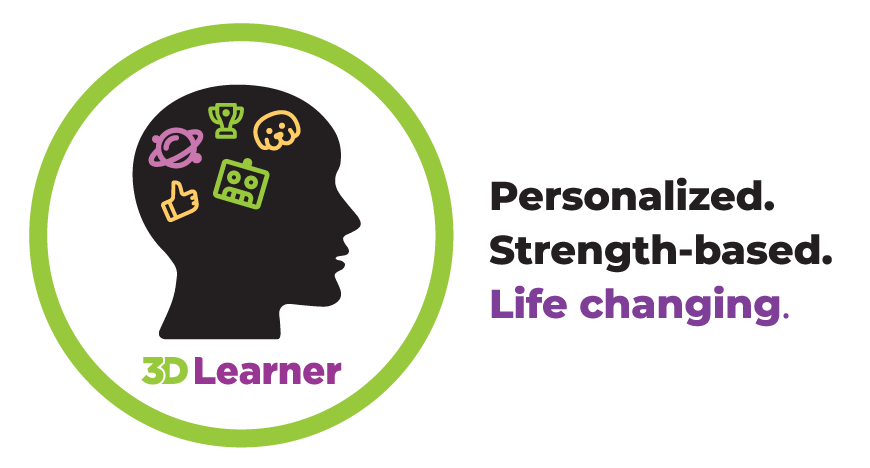
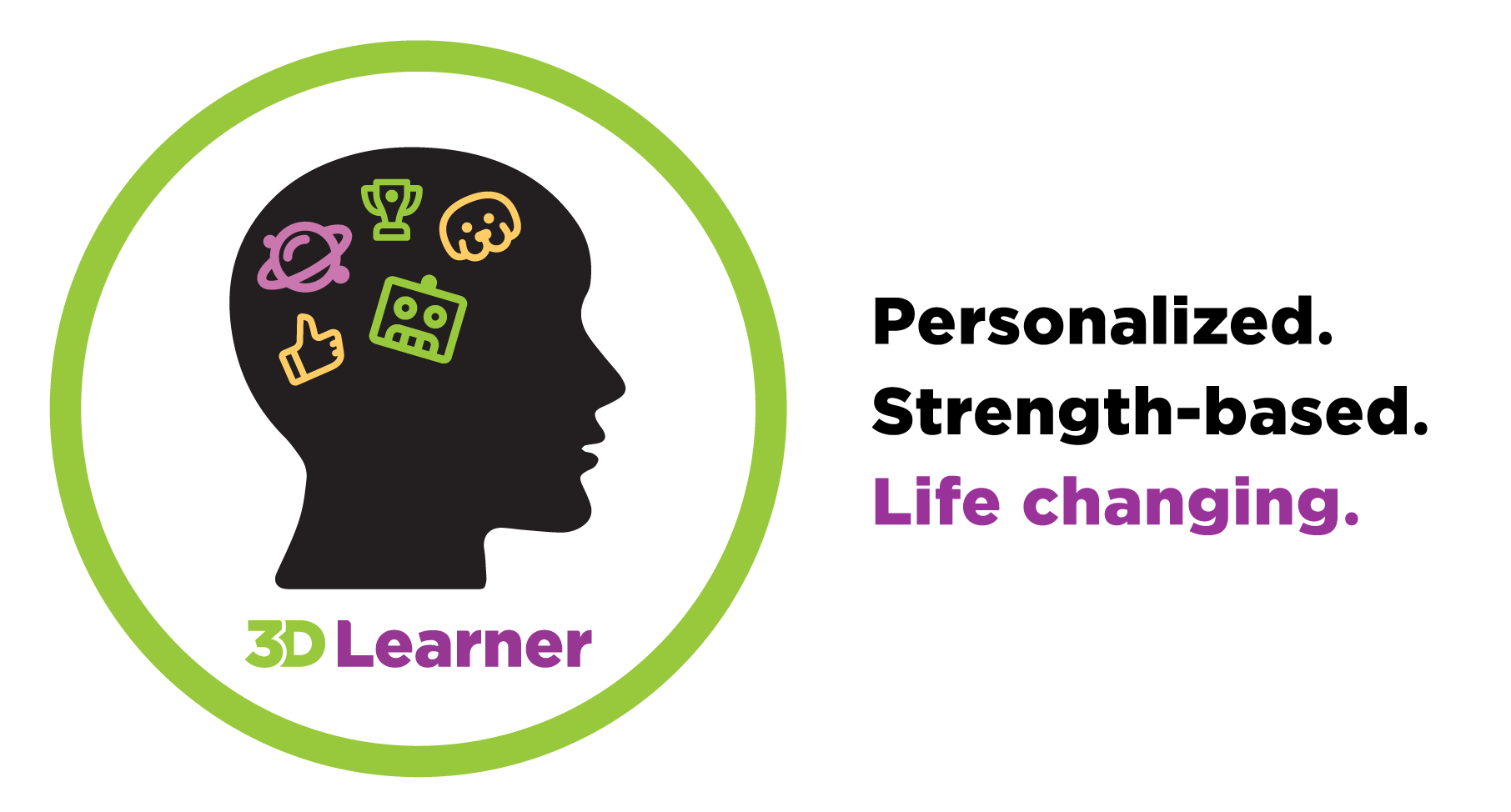





Recent Comments